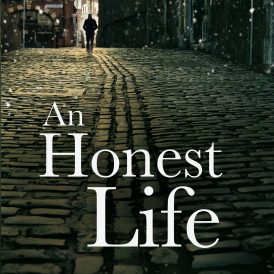If you’re a writer seeking to get published no doubt you’re considering, if you haven’t already done so, submitting your work to an agent with the hopes of being taken on for representation.
You may think that as you’ve finished your book the hard work is done and all you have to do now is post off a few sample chapters, right? Well… not quite! Submitting to agents can be an art in itself and there is a much defined etiquette emerging that it’s wise to take note of. Here are my honest, no-nonsense dos and don’t for submitting to agents.
1. Always remember – Agents are very busy people! They do not work 9-5 (they wish!) A common misconception is that an agent’s job is to read fledgling writers’ work with a view to securing new clients, not so. An agent’s work is representing their existing clients, and so a very small proportion of their time can be spent on reading new, unsigned authors’ work. Bear this in mind when approaching an agent. Unfortunately, they can’t spend the day reading mss (that’s short for manuscripts!) trying to find the next Anita Shreve/J.K. Rowling/Dan Brown. Instead they’re busy developing their signed writers’ careers and they have to try to squeeze in reading submissions around that. The writers they currently represent are the ones that bring in the money for them so these writers are the ones that get most of their time and it is crucial that potential new writers understand this. Ploughing through submissions is often squeezed in around the other day-to-day work. If you send your work to an agent, they’ll likely be reading it after hours or at the weekend. It’s important that enquiring writers realise that, sadly, they are not priorities for agents. Agents are in business, like everyone else in the world, agents need to make money to live and… as we all know… time is money…so an important lesson that all writers should be aware of when dealing with agents is to respect their time.
2. Always Make an Initial Enquiry. Always contact the agency first, preferably by email to enquire about submitting some work for consideration. Never simply send your work to the agency unannounced, it’s akin to turning up at someone’s home unannounced. You don’t want to force yourself or your work on an agent; you need to wait for an invitation to submit work. An email query should ask firstly if they are open to submissions, secondly how they would like to receive the submission, and thirdly offer a few lines about yourself and the book. Keep the tone polite and professional and the agent will reply in due course.
3. Don’t Mass Mail. Don’t email the literary agent or agency in a general mass mail out. Take the time to find out the name of the agent you are targeting and email them individually. Show respect and consideration, and prove that you particularly admire their work.
4. Don’t waste your own time and theirs by sending them work that is not suitable for them. Learn about the kind of work they take on and approach them accordingly. Visit their websites, learn more about them and only send work that you know they will have an interest in. Don’t send science fiction to an agent that quite clearly only works with fiction and so on. Show that you have researched who they are, what they do, who they represent and the writers they work with. If you don’t do your homework how can they assume you are serious about the publishing business? This is a business after all… Writing may be an art, but publishing is definitely a business!
5. Be polite! If they take the time to respond to you, even if it is to say thank for your work but they will not be offering to represent you, it’s nice to reply to let them know you have received their correspondence and thank them for their time. You never know when you might need them in the future. If they’ve taken time out of their busy day to look at your work an acknowledgement of that email is only polite.
6. Don’t Offer them More Work if they Refuse. If they refuse your work, generally speaking, they don’t want to be offered other work to read so don’t come back at them offering them a different book. If they don’t like the book you sent but do like your style then they will ask to read something else. If they don’t ask it’s probably likely they don’t really want to see anything else so don’t force them into having to say this.
7. Don’t try to engage them in long correspondence, see point 1. No matter what type of agent they are the likelihood is they are very time-poor. If they reply asking you for a sample don’t try to engage them in a conversation about what you should send, telling them about the different types of work you have, offering them various synopses to read and asking them to chose one to read some sample chapters from. They don’t have time for this. Pick what you think is your best, most saleable piece of work and send it on. You will only frustrate them by demanding more of their precious time.
8. Avoid Snail Mail unless directed otherwise. This is not a hard and fast rule but in general most agents prefer to receive queries by email, so I would advise all writers to start here. Always provide an email address for them to reply to in your submission. Simply put: replying by snail mail takes up too much of their…yes, you guessed it… time, sorry!
9. Don’t ask for feedback. You are asking them to consider representing you and that is what they will do but 99% of agents are not going to have the time to individually reply with any real feedback on your work and a critique for every submission they receive. Sorry to be brutal writers but consider what you are asking… why should an agent spend 30 minutes giving free feedback and a critique to every writer that contacts them, that would be a full time job and even agents have bills to pay!
10. Don’t keep contacting them to ask if they have read your work yet. If they have read your work they will respond to you, if they haven’t, they won’t. That said, it’s perfectly acceptable after a couple of months to check in by email and remind them they still have your work but weekly or fortnightly reminders will only serve to irritate them – unless you’re Dan Brown you won’t get away with it!
11. Get it Right. This is A VERY IMPORTANT POINT! Don’t send your work to an agent before it is ready. Remember even submitting to an agent you are competing with hundreds of other writers who are also trying to get that agent to take on their work so you need your work to be in the best shape it can be. Make sure your work is finished, polished, as close to perfect as possible. Do a thorough grammar and spelling proofread (there is no excuse for poor spelling as most writers use computers these days). Poor spelling and grammar will only prevent a smooth reading of your work. You only get one chance with an agent; if they turn you down they’re not likely to consider you again in the future so make your work shine. Consider joining a writers’ group, getting a professional assessment or critique, taking a writing class. Do whatever it takes to get your work in the BEST SHAPE IT CAN BE before submitting, opportunities are limited so don’t just lash your book out there once you’re finished it, take the time to really make it good and show commitment to your quest.
12. Have hope! Remember that agents are people too (!) and just like people they have individual tastes and preferences so if an agent turns your work down realise that they are not turning you down. Try to separate the two – you and your work – so you don’t take the rejection too hard. Just like ‘real people’ agents have vastly different tastes so whilst one book may appeal to one agent, it may not to another. If ten agents don’t want it that doesn’t mean the eleventh agent won’t adore it. Even booker prize judging panels have differences of opinions! Work hard at it and persevere and hopefully you will succeed. The publishing industry is a very tough industry but it is also an incredibly rewarding one so don’t give up!
Good luck!
#TLP


